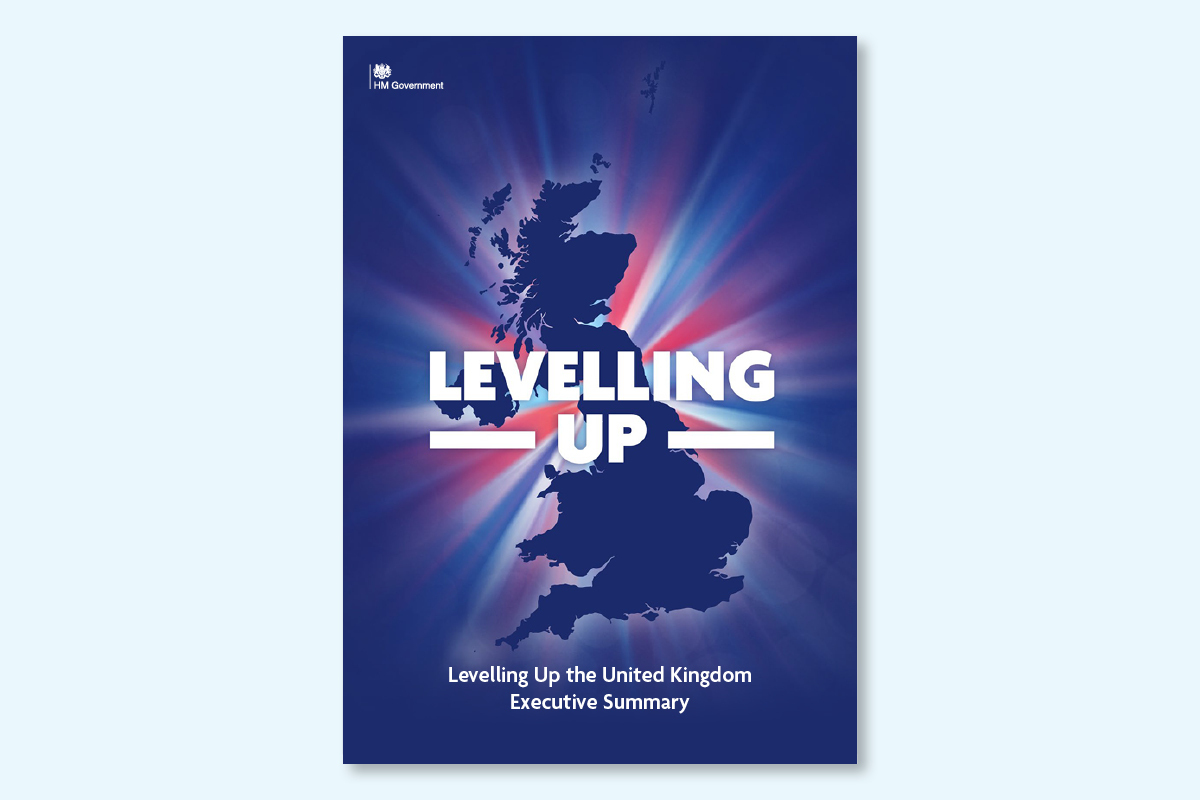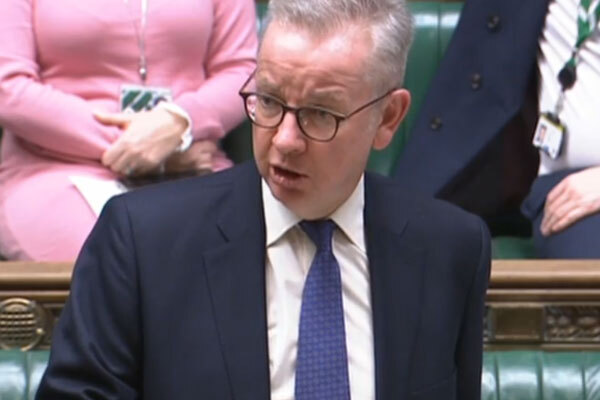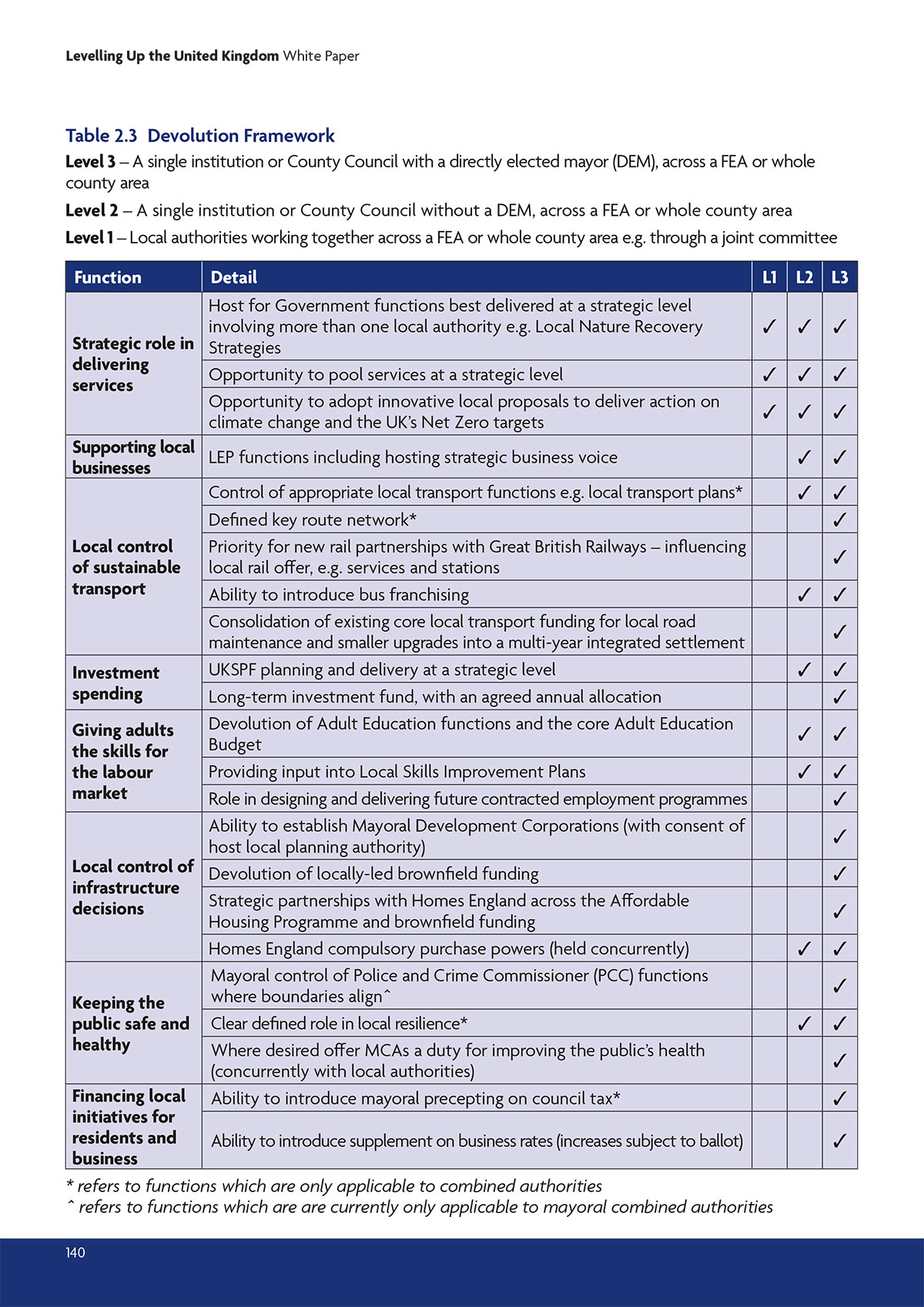You are viewing 1 of your 1 free articles
Levelling Up White Paper: all the housing policies at a glance
The government has unveiled its flagship Levelling Up White Paper. Lucie Heath has summed up the all the policies that will impact the housing sector.
When Boris Johnson’s Conservative Party was elected in 2019, it did so on a promise to “level up” the country.
Since then, there has been much debate about what the phrase ‘levelling up’ actually means.
Today ministers will attempt to answer that question through publishing the Levelling Up White Paper, which sets out 12 “missions” that the government will aim to achieve by 2030.
In terms of housing, the most relevant mission is: “By 2030, renters will have a secure path to ownership with the number of first-time buyers increasing in all areas; and the government’s ambition is for the number of non-decent rented homes to have fallen by 50%, with the biggest improvements in the lowest performing areas.”
Here is a breakdown of the housing policies that the government has outlined in order to achieve this mission:
Repurposing Homes England
As already announced over the weekend, Homes England, which is currently the government’s main housing delivery agency, will have its remit extended to include the regeneration of towns and cities.
It will support 20 towns and city centres, starting with Wolverhampton and Sheffield, to undertake “King’s Cross-style regeneration projects”. These areas will be prioritised for some funding pots, including the £1.5bn Brownfield Fund that was announced by the chancellor at the last Budget in October.
According to the white paper, Homes England “will use its resources, expertise, experience and buying power in dealing with developers to enable local leaders to leverage all the funding available in a particular place”.
This will build on the lessons learned from Homes England’s partnership with Greater Manchester Combined Authority, Homes England and local housing providers in Manchester, the white paper said.
Scrapping 80/20 rule
Social landlords in the North have long complained about the ‘80/20 rule’, which sees 80% of funding for housing supply directed at ‘maximum affordability areas’, effectively prioritising the South East.
Ministers previously promised to revise these rules as part of the 2020 Spending Review and have confirmed today that the formula will be scrapped completely. Much of the previously announced £1.8bn brownfield funding will be diverted to the North and the Midlands, the government said.
Private rented sector reform
It has been more than two years since former prime minister Theresa May promised to abolish Section 21 ‘no-fault’ evictions. Ministers have repeatedly stated that the government intends to stick to this promise, which will be further outlined through the introduction of a separate white paper for the private rented sector later this year.
Today’s Levelling Up White Paper reiterated the intention to abolish this type of eviction and confirmed that the white paper will be published in the spring. On top of that, it includes the pledge that all homes in the private rented sector will be forced to meet the Decent Homes Standard.
Minsters will also consult on introducing a landlords register and will “set out plans for a crackdown on rogue landlords”.
Homeownership
The mission to boost homeownership will be achieved with the help of the previously announced £1.5bn Levelling Up Home Building Fund, which will provide loans to SMEs and support the wider regeneration agenda, the government has said.
DLUHC also said that it would look to limit the competition that first-time buyers face and, in turn, bring down the increased costs driven by that competition. As part of this they will look at options “to limit the factors which are pricing out local people” and look abroad at how other countries have successfully done this.
The government has also promised to review the buying and selling process and reduce the costs that prospective purchasers pay before they have secured a property. Currently around a third of all purchases fall through before exchange.
As part of the plan, the government and the housing sector will work together to ensure critical material information buyers need to know – such as tenure type, lease length and any service charges – are available digitally wherever possible from trusted and authenticated sources, and provided only once. They will also consider making this a legal requirement on each property.
Devolution
A major new promise through the white paper includes a new “devolution revolution”. Nine areas will be invited to agree new county deals and ministers will seek to agree further mayoral combined authority deals for York and North Yorkshire.
Negotiations will also take place over an expanded mayoral combined authority deal for the North East and “trailblazer” devolution deals with the West Midlands and Greater Manchester.
By 2030, every part of England that wishes to have a ‘London-style’ devolution deal will have one, ministers have pledged. This could have a huge ramification for housing, given the level of autonomy that London mayor Sadiq Khan currently has over housing spend and policy in the capital.
The white paper sets out a ‘devolution framework’ based on three levels of devolution. Under the framework, areas with a directly elected mayor will have significant control over housing spend, including grant funding via the Affordable Homes Programme.
Social housing
The government has also reiterated its commitment to “building more genuinely affordable housing”, presumably through the £11.5bn Affordable Homes Programme, and to introduce a Social Housing Regulation Bill, the details of which were outlined in the Social Housing White Paper in 2020.
Sign up for our daily newsletter
Already have an account? Click here to manage your newsletters














